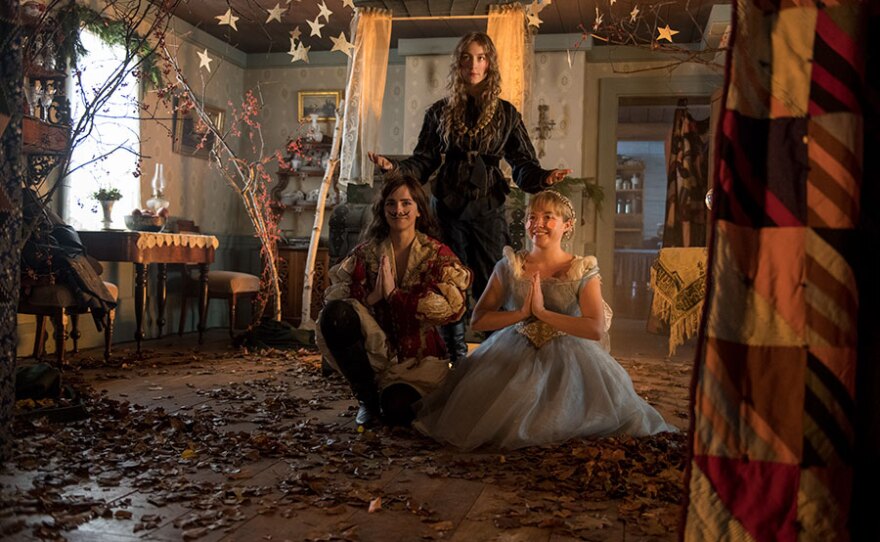The first time I saw a Greta Gerwig character run unfettered through city streets was Gerwig herself, in 2012’s “Frances Ha,” which she co-wrote with Noah Baumbach. Saoirse Ronan’s Jo March, fresh off a commercial sale of a short story, feeling a blush of success as a writer, and, most likely as a woman, launches Gerwig’s adaptation of “Little Women” with a similar, gleeful city run.
The newest take on Louisa May Alcott’s much-adapted novel is lovely, and more than a little revelatory, thanks to the way Gerwig paints the quiet storms between characters. These women love each other, ruin each other and save each other. To love each other as deeply as these women do is to constantly mourn each other. But the subject matter is as universal as ever. The movie loudly insists that stories about women are important to tell because they’re stories about women, not despite it.
Opening December 25, Gerwig’s “Little Women” works because so much of the story depends on the audience either believing what the other sisters tell us about these beloved characters or desperately caring enough about these women to want to fill in the blanks. In this adaptation, with the warmth, joy and sadness passed easily amongst the women (like a table basket of March family breakfast pastries) we care.
And fans, whether or not they’ve read the original text, cut their teeth on Winona Ryder’s Jo, or just learned everything they need to know from the ‘90s and Joey Tribbiani in “Friends,” have pretty high hopes but also a basic understanding of the cogs and inner workings of each character. But in her undertaking of adapting this story, Gerwig doesn’t lean on that sure thing. These characters feel new.
Fiery monologues and whimsical theatrical montages (those sister-crafted sets!) shape these women into exceptional and powerful stewards of their — and Alcott’s — stories, but it’s the hints of hesitation, the brief flashes of restraint, the pauses of self-reflection, fear or maybe even a heart so full of love it’s bound to break that make them believable. Florence Pugh graces her Amy March with enough self-doubt and humanity that the character’s indulgence and self-absorption is tempered by relatability and understanding from the audience (and, unfailingly, her sisters).

With such a powerhouse ensemble cast, we weave through the story not just with bouncing timelines, but with rotating protagonists. And though the story naturally dwells primarily with Jo and Amy, it doesn’t feel it, thanks to the strength of scenes with Beth quietly knocking on the Hummel family’s door, or approaching Mr. Laurence’s piano, or when Meg embraces her children after spending too much on fine green silk. Or the first time we meet Marmee: Slowly bursting through the door on Christmas morning, steeling herself and shaking off a deep sadness before cheerfully greeting her daughters.
One scene that’s profoundly still relevant in 2019 is a private conversation between Jo and Marmee, when Jo confesses her innate and inexplicable anger and rage. As Jo tackles her own creative life and publishing career being told what stories about women are interesting or good, she’s learning that who she essentially is — and who her sisters and mother are — is a story worth telling.






